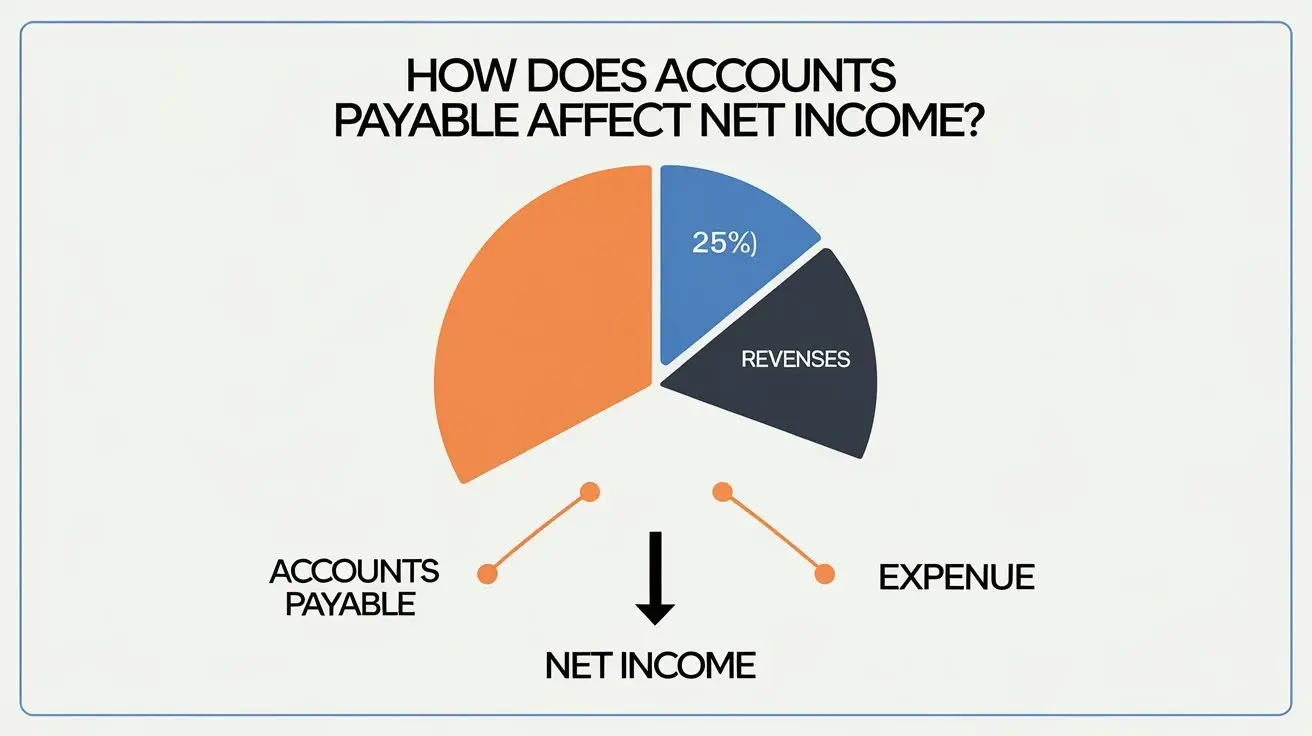How Does Accounts Payable Affect Net Income?

Here we have gathered the key definitions and concepts that one has to be acquainted with about business and finance. Among all the financial parameters, accounts payable and net income are essential to take into consideration for a company. The two terms are closely related, and one can get useful information about the financial performance of a company if they are contrasted.
Accounts Payable: What Is It?
In the simplest terms, accounts payable is the total cost (the sum total) of the invoices that are open and are owed to the suppliers or creditors (whichever has not been paid for the products or services received by the company. More to this, it is the cash that a business will be forced to release in the future is known as liability. It’s stated on a company’s balance sheet and is generally considered to be one of the most major current liabilities.
Employers are subject to a process called accounts payable since the process starts when a company orders products or services from its suppliers. The supplier then presents an invoice that shows the products bought, and the amount to be paid. This invoice’s record is taken by the company’s Accounting department and the sum will be included in the company’s accounts payable.
The branch of the business that deals with these obligations is accounts payable and they have to be paid on time and in full. This includes many activities that may include; checking when the invoice is due to be paid, paying the invoice, etc, and keeping records.
Net Income: What Is It?
Net income refers to the level of gross profit of a firm after deducting all costs of sales, operating, and other expenses inclusive of interest, taxes, and other overheads. That is the difference between the total income received and all the allowable expenditures incurred by the business.
Net income is part of the company’s income statement and is considered one of the most useful indicators of financial performance. There are always questions about how much money a company makes and the Net income is usually a direct answer to the amount of money the firm has been able to make within a given period of time.
The effect that Accounts Payable has on Net income
AP can still play a major role in the net income of a company no matter how little it may sound to some people. These two figures are usually correlated in some way, although various conditions might affect it.
1. Timing Differences
Some of the common areas where accounts payable play a vital role in the determination of net income involve timing differences. When a company buys stock on commercial terms, it debits the cost of such stock in its accounts as expense though the payment may not have been made. This leads to a reduction of net income, by matching the expense to the revenue even when the cash has not been paid yet.
On the other hand, if a company is able to make payments for the accounts payable after the end of its financial year, then the net income for the year would be higher. This is so because the cost arises later when the recorded revenues are tallied thus enhancing the company’s reporting of enhanced profits. It is commonly employed with the intention of inflating the profit and revenues of a business, to make it seem better off than it really is.
2. Cash Flow
Accounts payable can also affect a firm by affecting its cash flow. The term trade credits refers to a situation where a company has not yet paid for the commodity or services offered by suppliers. This can clear the cash that would otherwise be engaged in other activities for instance buying new equipment or paying a dividend to its shareholders.
However, linkages with a high number of accounts payable can be also considered as one of the risk factors because the company simply may not have enough money on its balances to pay all accounts payable if there is a delay with the payment by customers. It can result in cash flow problems and as a result, can affect the efficiency of the company and profitability.
3. Negotiation Power
Business organizations experiencing higher accounts payable may perhaps negotiate better with their vendors. This may be because some suppliers may be willing to apply some discount or any other reason with a view of getting paid for the supplied goods or services offered.
For instance, a firm with a high amount of accounts payable may negotiate with its suppliers for early payment discounts or may opt for longer periods for payment beyond the next thirty days. These discounts and long terms also make the overall price of goods or services less and increase the net income of the company.
Conclusion
In conclusion, accounts payable is an indispensable element in any business and this figure may have a dramatic impact on the company’s net income. It is crucial when studying these two personalities to determine their correlation to make correct decisions on the financial results of a company and its future perspectives.
Therefore through monitoring accounts payable and including factors of timing difference cash flow negotiating power a company can control its cost and, thus increase its net income. Finally, it could culminate in improved revenues and a better business than it is today.
Contact us here for Accounts Payable Services now!

